
The Universidade Federal de Santa Catarina (UFSC) has stood out in the international ranking of Research.com, a platform which gathers the most cited scientists and universities in the world. The ranking is based on metrics covering data from researchers and institutions in 22 areas of scientific knowledge.
The areas of knowledge analyzed by the ranking involve the natural, medical, exact and technological sciences. UFSC has stood out among the most prestigious institutions of the world and leading institutions in Brazil in the areas of Agriculture, Animal Sciences and Veterinary Medicine; Chemistry; Ecology and Evolution; Electrical and Electronics Engineering; Engineering and Technology; Mathematics; Medicine and Neuroscience.
According to the methodology published on their website, the main objective of the ranking is to promote high quality venues of research and establish a place for young scholars to be inspired by leading scientists.
The ranking of top scientists was launched in 2014 and takes into account a metric called “H-index”, proportion of the contributions made within the given discipline, in addition to the awards and achievement of the scientists. The H-index is used to rank scholars in descending order combined with the total number of citations. It is an indicative measure which reflects the number of influential documents authored by scientists. The H-index and citation data is obtained from Microsoft Academics, which is the largest open bibliometric database.
As for the universities, the first edition of the university ranking was released in 2020, covering over 591 research institutions, but limited to computer science. The ranking of universities is based on simple metrics highly related to the reputation of academic staff.
UFSC scientists are among the most cited in the world. Professor Ivo Barbi, from the Graduate Program in Electrical Engineering (PPGEEL), was the best ranked in Brazil in the area of Electrical Engineering. Among the most cited Brazilian scientists in the areas of Chemistry, eight are from UFSC.
Check below the highlights of the ranking (information obtained from the Lattes platform)
:: Agriculture
Miguel Pedro Guerra
Guerra is a full professor at the Universidade Federal de Santa Catarina, being a faculty member in the Graduate Program in Plant Genetic Resources, and a visiting professor at the Universidade Agostinho Neto de Angola. He works in the field of Plant Genetic Resources and is particularly concerned with aspects related to characterization, conservation, improvement and sustainable use, by using apppropriate biotechnologies based on cellular and molecular biology and with an emphasis on native species of plants in several Brazilian biomes.
:: Ecology and Evolution
Sergio R. Floeter
Floeter has an undergraduate degree in Biological Sciences from the Universidade Federal do Espírito Santo – UFES (1992), a master’s degree in Social Psychology from UFES (1999), a doctoral degree in Environmental Sciences from UENF (2003), and a postdoctoral degree from the National Center for Ecological Analysis and Synthesis (NCEAS) at the University of California. He has been an associate professor at the Universidade Federal de Santa Catarina since 2006 and, currently, he is a faculty member in the Graduate Program in Ecology at UFSC. He has been a CNPq research productivity fellow since 2009. He was cited more than 8,200 times, according to Google Scholar (h-index 48).
:: Electrical and Electronic Engineering
Ivo Barbi
He has an undergraduate degree and a master’s degree in Electrical Engineering from the Universidade Federal de Santa Catarina and a doctoral degree in Electrical Engineering from the Toulouse Institut National Polytechnique (1979). Barbi is one of the founders and honorary chairman of the Brazilian Power Electronics Society – SOBRAEP (1990), chairman of the first Brazilian Power Electronics Conference (1991), and founder (2016) and current director of the Brazilian Power Electronics Institute – IBEPE. He is currently a faculty member in the Graduate Program in Electrical Engineering (PPGEEL) at UFSC, a researcher in the Fotovoltaica/UFSC Solar Energy Research Laboratory, and the coordinator of the Energy Processing Research Group, registered in CNPq.
Julio E. Normey-Rico
He has an undergraduate degree in Electrical Engineering from the Universidad Nacional de La Plata (1986), a master’s degree in Electrical Engineering from the Universidade Federal de Santa Catarina (1989), and a doctoral degree in Automatic and Electronic Robotics from the Universidad de Sevilla (1999). Currently, Normey-Rico is a full professor at the Universidade Federal de Santa Catarina, a CNPq researcher, a coordinator of several research projects in the area of energy, and a member of the editorial board of the International Renewable Energy Congress. He has experience in the field of Automation and Control Engineering, with emphasis on process control, working mainly on the following topics: control of time-delay systems and predictive control, with applications in several sectors of the industry, mainly oil and natural gas and renewable energies.
:: Engineering and Technology
Roberto Lamberts
He has an undergraduate degree in Civil Engineering from the Universidade Federal do Rio Grande do Sul (1980), a master’s degree in Engineering from the Universidade Federal do Rio Grande do Sul (1983), and a doctoral degree in Civil Engineering from the University of Leeds (1988). Currently, Lamberts is a full professor at the Universidade Federal de Santa Catarina. He works in the area of Civil Engineering, with an emphasis on energy efficiency, thermal performance of buildings, bioclimatology and thermal comfort. Lamberts is the supervisor of the Building Energy Efficiency Laboratory (LabEEE) at UFSC.
:: Mathematics
Ruy Exel
He has an undergraduate degree in Mathematics from the Universidade de São Paulo (1976), a master’s degree in Mathematics from the Universidade de São Paulo (1978), and a doctoral degree from the University of California in Berkeley (1985). Exel is a volunteer professor at the Universidade Federal de Santa Catarina. He has experience in the area of Mathematics with an emphasis on Functional Analysis.
:: Medicine
João B. Calixto
He is a retired professor of Pharmacology at UFSC, level IA CNPq researcher, and a member of the Brazilian Academy of Sciences (ABC) since 2000. He was twice elected chairman of the Brazilian Society of Pharmacology and Experimental Therapeutics (SBFTE).
Adair R. S. Santos (in memorian)
:: Neuroscience
Reinaldo N. Takahashi
He is a retired professor and supervisor in the Graduate Program in Pharmacology at the Universidade Federal de Santa Catarina and a level IB CNPq researcher. Takahashi has experience in the field of Pharmacology, with an emphasis on Neuropsychopharmacology, working mainly on the following topics: neurobiology of cannabinoid drug addiction and psychopharmacology in memory models, attention deficit and neurodegenerative diseases.
Roger Walz
He has been a full professor in the Department of Internal Medicine at UFSC since 2004, having occupied the positions of head and deputy head of department (2011). He idealized and was responsible for the Center for Epilepsy Surgery in Santa Catarina (CEPESC) at the Celso Ramos Hospital (2008-2014).
Peter Wolf
He is a German neurologist who has dedicated his entire career to studying epilepsy. A leading international epileptologist, he was the chairman of the International League Against Epilepsy (ILAE) from 2005 to 2009. Wolf is a visiting professor in Brazil and a fellow of the Science without Borders program, affiliated to the Graduate Program in Medical Sciences.
:: Veterinary Sciences
Maurício Laterça Martins
He is a full professor in the Department of Aquaculture, School of Agricultural Sciences (CCA), at the Universidade Federal de Santa Catarina. Martins is a member of the Center for Studies in Aquaculture Pathology and is responsible for the Sanity of Aquatic Organisms Laboratory (AQUOS). He has integrated projects with EMBRAPA (Brazilian Agricultural Research Corporation), EPAGRI (Santa Catarina Agricultural Research and Rural Extension Company), national and international universities, fish farms, and private companies. His research interests involve fish pathology, fish parasitology, hematology, ecology of fish parasites, stress and inflammation in fish, probiotics in aquaculture, immunoprophylaxis, parasitic diseases, and hemato-immunology of cephalopods. He is a level IB CNPq research productivity fellow.
Maria José Hötzel
Hötzel is an associate professor at the Universidade Federal de Santa Catarina (UFSC). She develops teaching, research and outreach activities in the field of applied ethology and animal welfare in the Department of Animal Sciences and Rural Development and in the Graduate Program in Agricultural and Natural Ecosystems, as well as through collaborations with other national and international scientists. Her work aims at developing sustainable agroecosystems, with a focus on understanding and improving animal welfare, considering the various ethical, environmental, social and economic implications of husbandry practices and livestock production systems. She is a level 1A CNPq research productivity fellow.
:: Chemistry
Bernhard Welz
He has an undergraduate degree (1960) and a master’s degree in Chemistry (1964) from the Ludwig Maximilian Universität München and a doctoral degree (1966) in Inorganic Chemistry from the Technische Hochschule Stuttgart. Currently, he is a volunteer professor at the Universidade Federal de Santa Catarina. Welz has experience in the area of Chemistry, with an emphasis on Trace Analysis and Environmental Chemistry.
Antonio L. Braga
Braga is a full professor at the Universidade Federal de Santa Catarina. He has experience in Organic Synthesis, working mostly on the following topics: green chemistry, asymmetric catalysis, bioactive molecules of selenium and tellurium derived from amino acids and other natural sources, and mimetic synthesis of the Glutathione Peroxidase enzyme. He is a 1A CNPq research productivity fellow.
Adilson J. Curtius
He is a full volunteer professor at the Universidade Federal de Santa Catarina and a specialist in atomic spectrometry, particularly in ICP-MS and AAS (conventional and high-resolution continuum source). Curtius develops analytical methods for the determination of trace elements in geological samples (waters, soils, sediments, ores, minerals, etc.), biological samples (blood, urine, hair, etc.) and industrial samples (fuels, effluents, alloys, etc.).
Rosendo A. Yunes
Yunes is an emeritus professor at UFSC. He graduated in Chemistry (1962) and has a doctoral degree in Chemistry from the Universidade Del Litoral (1965). Currently, he is a CNPq senior researcher and a volunteer professor at the Universidade do Vale do Itajaí. He has experience in the area of Chemistry, with an emphasis on Physical Organic Chemistry, working particularly on the following topics: chalcone, chemical study, Phyllanthus sellovianus, mice, and thermodynamic parameters.
Vladimir Oliveira
Oliveira is a level 1A CNPq research productivity fellow. He currently develops research in the following areas: thermodynamics of phase equilibrium at low and high pressures, encapsulation and release of bioactive compounds in nanostructures, enzymatic production of biopolymers, activity/stability of enzymes in pressurized media, enzymatic reactions in pressurized fluids and in ultrasound, inactivation of microorganisms and cell disruption using pressurized fluids, alternative techniques for producing biodiesel (enzymatic, supercritical method, ultrasound), alternative processes of membrane separation, experimental determination of thermodynamic properties and transport coefficients, and process development in the presence of magnetic field. Oliveira is currently a faculty member in the Environmental Sciences Program at Unochapecó and a full professor at UFSC.
Ademir Neves (in memorian)
Debora de Oliveira
Oliveira is a 1D CNPq research productivity fellow. She has experience in the area of Biotechnological Processes, working mainly on the following topics: production, purification and immobilization of enzymes; development of enzymatic processes; production of biocompounds of industrial interest; production of biofuels, with emphasis on biodiesel and biohydrogen; biotechnological use of industrial waste, focusing on research, development and innovation within these areas. Oliveira has about 350 articles published in scientific journals in the area and has supervised around 130 master’s dissertations and doctoral theses, in addition to having supervised several postdoctoral internships. Currently, her H-Factor is 42.
Moacir Geraldo Pizzolatti
He joined the Universidade Federal de Santa Catarina in 1985 as a lecturer and is currently an associate professor at UFSC and a level IB CNPq researcher. Pizzolatti leads the Natural Products Chemistry Research Group in the Department of Chemistry at UFSC and is the coordinator of the Natural Products Chemistry Laboratory (LQPN). He has experience in the area of Chemistry, with emphasis on biological chemistry and natural products chemistry, working mainly on the following lines of research: a) exploitation of the natural resources of the South Atlantic Forest to obtain new substances with therapeutic properties (phytochemical and bioprospecting studies and biological activities), b) chemosystematics, chemical ecology and bioactivity of the Polygala genus, and c) synthesis and semi-synthesis of active molecules from natural models, enzyme bioassays, ADME studies, and structure-activity correlation studies.
Translated by SINTER/UFSC.
Read the original article here.





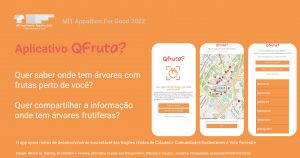 The
The 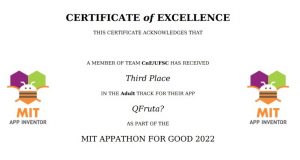


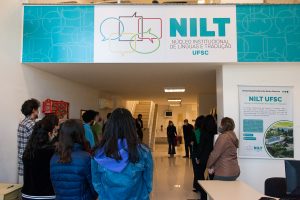
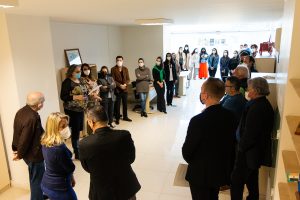
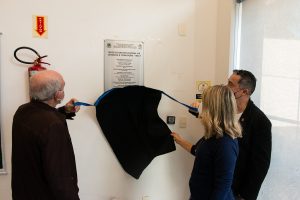
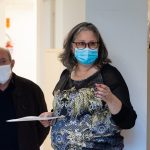
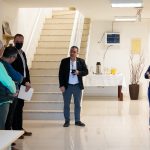
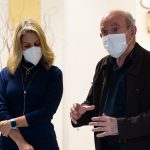
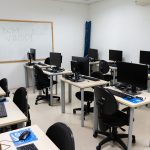
 The Universidade Federal de Santa Catarina (UFSC) is ranked 23rd among the best universities in Latin America, according to the QS World University Rankings 2023. The survey places UFSC among the thousand best universities in the world, in the 801-1000 band, the same as in the previous edition. The ranking is prepared annually by Quacquarelli Symonds (QS), a British company specialized in education, and includes almost 1,500 universities from all continents.
The Universidade Federal de Santa Catarina (UFSC) is ranked 23rd among the best universities in Latin America, according to the QS World University Rankings 2023. The survey places UFSC among the thousand best universities in the world, in the 801-1000 band, the same as in the previous edition. The ranking is prepared annually by Quacquarelli Symonds (QS), a British company specialized in education, and includes almost 1,500 universities from all continents.